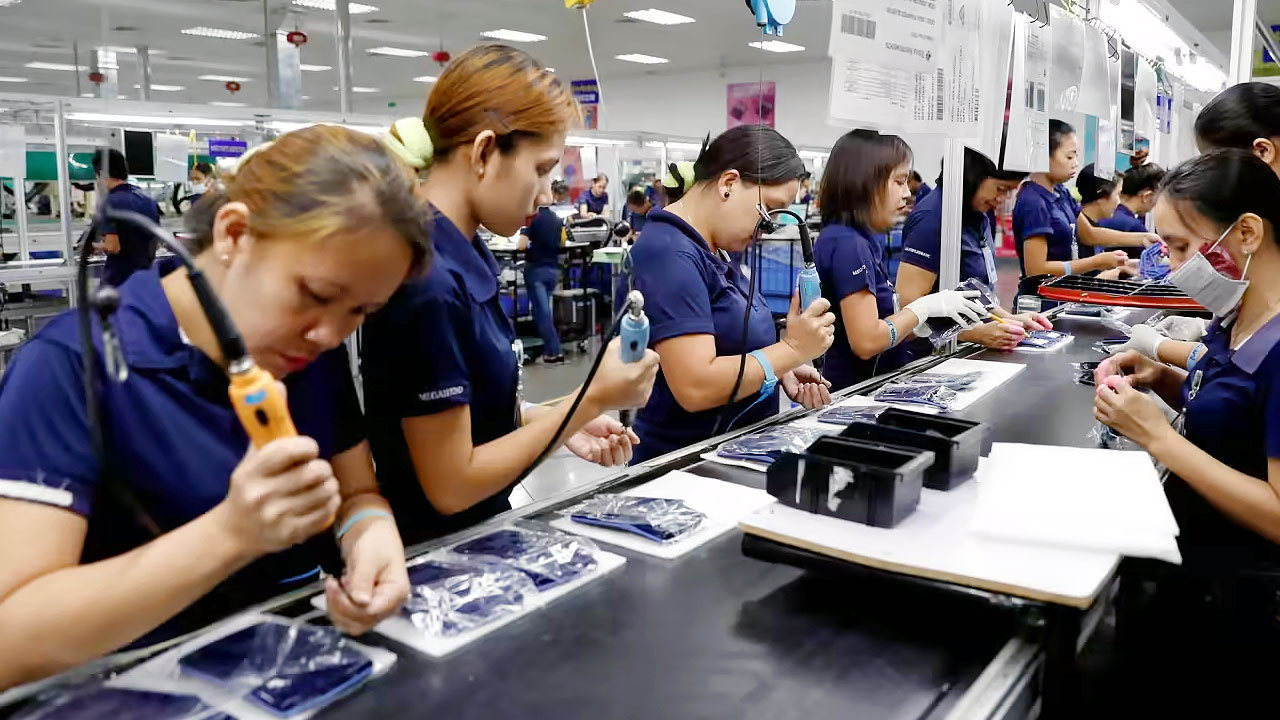ILO: Philippines has potential to boost jobs in manufacturing sector

THE PHILIPPINES has the potential to increase jobs in the manufacturing sector as the economy recovers from the coronavirus pandemic, the International Labour Organization (ILO) said on Monday.
“There could be some potential in boosting manufacturing employment, for example, in India, Mongolia and the Philippines. Yet, it will remain difficult for the Philippines, India, and Mongolia to compete for manufacturing foreign direct investment against countries with lower costs and more advanced manufacturing infrastructure and logistics,” the ILO said in its Asia-Pacific Employment and Social Outlook Report 2022.
The Philippines’ jobless rate dropped to 5% in September, the lowest since the start of the pandemic. This is equivalent to 2.5 million unemployed Filipinos in September.
However, job quality worsened in September as Filipinos seeking more work rose to a six-month high of 15.4% or 7.33 million underemployed workers.
Despite this, the manufacturing sector posted the highest monthly increase in jobs, adding 780,000 to 4.45 million workers in September.
In its report, the ILO said Asia-Pacific labor markets have partially bounced back from the impact of the pandemic, but full recovery is still uncertain.
In the Asia-Pacific region, the ILO said the jobless rate this year was 2% above the pre-pandemic level in 2019, recovering from the loss of over 57 million jobs in 2020.
However, the region still lacks 22 million jobs in 2022, “a jobs gap of 1.1% compared to if the pandemic had not occurred,” the ILO said. This is expected to rise to 26 million in 2023 amid the gloomy global outlook.
“Although Asia-Pacific employment trends look positive, the region’s labor market is not yet back on its pre-crisis track with numerous additional challenges casting shadows on future growth prospects. It is vital that we bring inclusive and human-centered growth back to the region and not settle for a ‘quasi’ recovery based on informal and poor-quality jobs,” Chihoko Asada Miyakawa, ILO assistant director-general and regional director for Asia and the Pacific, said in a statement.
Bienvenido S. Oplas, Jr., founder of free market think-tank Minimal Government Thinkers, said the Philippines’ manufacturing sector is struggling to attract more foreign direct investments due to high power costs.
Michael L. Ricafort, chief economist at Rizal Commercial Banking Corp., said in a Viber message that the Philippines “may position itself on the higher end of the global value chain if brings more jobs to the manufacturing sector.”
Meanwhile, the ILO report noted the Philippines, Thailand, and Vietnam were among the only countries to have a national plan in support of “Industry 4.0” or the integration of new technologies and automation in manufacturing.
It also said the Philippines was also one of the only countries in the region to have mandatory social security coverage for domestic workers.
The Philippines is the only country in Asia and the Pacific that ratified the Domestic Workers’ Convention in 2011. A year later, the country passed the Domestic Workers Act that set a minimum wage, benefits, and improved terms of employment for domestic workers. — J.V.D.Ordoñez
